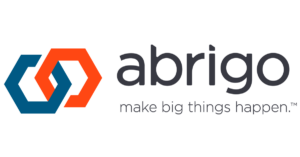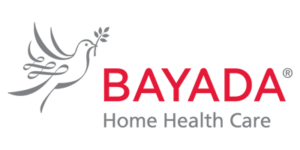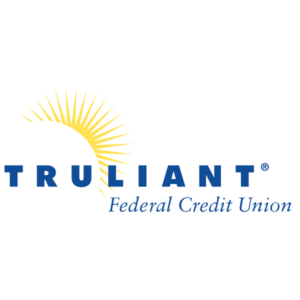Shaping Culture for Workplace Success
Companies with flourishing cultures—ones that encourage inclusive leadership and exhibit appreciation for employees—outperform those with unremarkable cultures time and time again. TDM provides you with the insights, strategy, education, and customized support necessary to help your team deliver breakthrough results.
Support Tailored to Your Unique Organization
TDM makes your path to workplace excellence clear and achievable with our proven suite of comprehensive assessments, dedicated coaches and world class training. Our ACT approach (Assess | Coach | Train) creates the step-by-step action plan your teams need to navigate change, develop a culture of collaboration, and enhance productivity.

Culture Assessments pinpoint strengths and areas for improvement.
Our comprehensive organizational assessment process dives deep into your organization’s culture, understanding where you excel and areas needing attention. Through listening sessions, policy review, surveys, and demographic audits, we identify your baseline. TDM Analytics, our metrics dashboard allows you to visualize employee sentiment and engagement levels, tracking insights across a variety of criteria including job level,demographic group and organizational functions (e.g., sales, finance, marketing). This data-driven approach sets the foundation for a meaningful culture transformation.
Strategic Coaching helps you put plans into action.
TDM offers strategic guidance, mentoring programs, and continuous support, ensuring DEI principles are seamlessly integrated into daily operations, policies, and decision-making processes, resulting in a more productive company culture. We offer customized coaching for DEI councils, leadership teams, HR professionals and more, providing guidance around a myriad of topics proven to improve engagement & culture including:
- Mentorship & sponsorship programs
- Employee retention strategies including stay interviews, career planning, and professional development opportunities
- Inclusive leadership development for people managers and executives
- Inclusive workplace best practices including using inclusive language, fostering psychological safety, implementing inclusive programming, and more
Learn more about TDM’s coaching services:
Training equips your team with the skills needed to contribute to a productive culture.
When you know better, you do better. TDM’s educational initiatives include workshops, online courses, and microlearning that cover DEI basics, advanced topics, and industry-specific nuances. Equip your teams with the knowledge they need to participate in an inclusive culture.
We also offer specialized certifications for those responsible for culture-building initiatives.
Organizations Prospering with TDM
Engaged Employees = Productive Employees
Research shows that highly-engaged employees generate 18% more in sales and are 14% more productive, resulting in a 23% increase in profitability. Additionally, highly engaged teams show up to 43% lower turnover rates, saving your business thousands of dollars in turnover costs.
Let’s boil it down to one key takeaway: one long-term study showed that a thriving company culture increases revenue by over 400%.
Culture-Building Resources
Culture-Building That Gets Results
We’re here to help you every step of the way.
Frequently Asked Questions
How can I improve company culture?
If you have concerns that your company culture might be negative or toxic, there are several steps you can take to reverse the damage. The most important thing is to listen to those around you. Why do people feel unsafe at work? What’s perpetuating the current culture? How do people want to see things change? Then, be sure to act on these suggestions to show that you’re listening.
A negative company culture can also be rooted in a fear of making mistakes. One key part of facilitating a healthy work environment is accepting that no one is perfect. If you or another employee makes a mistake, apologize or accept their sincere apology. Don’t dwell on the moment, but do apologize, move on, and don’t make the same mistake again.
Finally, a toxic company culture is quickly created in the presence of microaggressions or outright discrimination. Make it clear that there is zero tolerance of discriminatory behavior at your organization.
Why is employee engagement important?
Put simply, positive and engaged workers generate better results. Employees complete projects faster and more efficiently. They show more initiative and creativity in their work, reporting higher productivity and fulfillment. Employees stay longer because they feel welcome and accepted. Employee engagement directly improves retention and reduces turnover.
When employees are engaged and feel comfortable communicating with managers and colleagues, and managers provide positive, constructive feedback over time, the full team benefits. In addition, team members don’t feel overworked and are able to balance their professional and personal lives.
How can I increase employee engagement?
Employee engagement can be driven by a number of factors, but at the end of the day, it’s about creating an inclusive workplace. This means using inclusive language, enacting inclusive policies, and having equitable processes in place for things like professional development and promotion.
If you’re a leader at the organization, you set the tone for the workplace culture. Make sure you’re using inclusive leadership best practices and cultivating an environment of psychological safety. Employees can’t be fully engaged if they don’t trust and respect their boss and team.
How do you measure employee experience?
Employee experience is best measured by conducting annual culture surveys and listening sessions. The only way to really know how employees feel is to solicit their feedback. When possible, collect feedback anonymously so that employees feel safe being honest. And be sure to track data year-to-year so that you can measure progress over time.

















